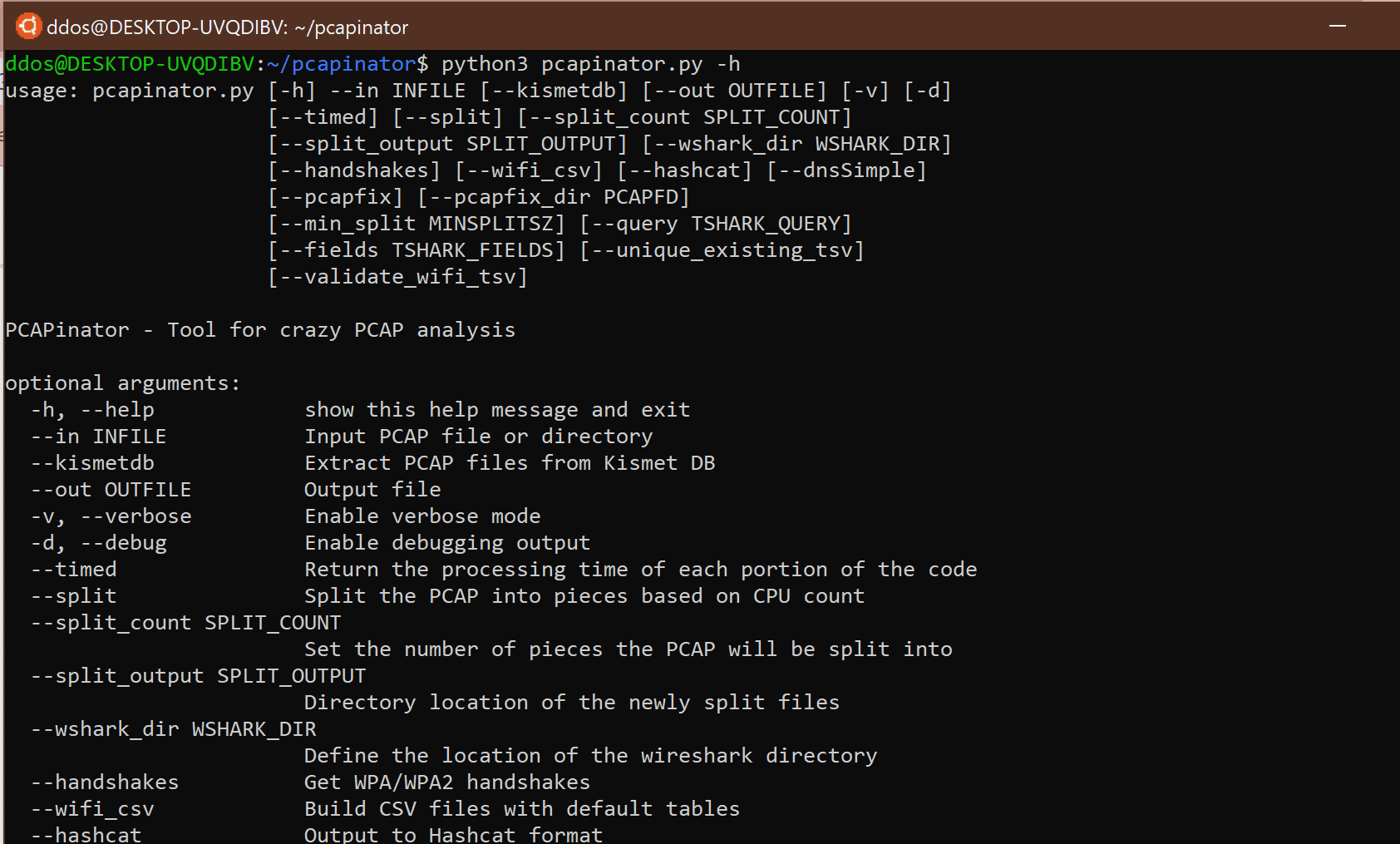pcapinator: tool for processing a lot of pcaps using tshark

pcapinator
An application to deal with lots of pcaps by running lots of tsharks
Features
- Recursively process multiple PCAP files including those in subdirectories.
- Wrapper around editcap (Wireshark Tool) that will let the user break PCAP files into smaller pieces.
- Automatically grab all handshakes save as a pcap and also hashcat file for processing.
- Wrapper around tshark that will let the user filter pcap files for handshakes and output as pcap.
- Gathers standard wireless info and puts it into a CSV
Install
git clone https://github.com/mspicer/pcapinator.git
pip3 install python-dateutil pandas
Use
Run PCAPFix on the dataset to repair damaged or cutshort PCAPs.
./pcapinator.py –in [directory or file] –pcapfix –pcapfix_dir [directory for original pcaps before fix] –debug
Gather all of the typical wireless information from a pcap and output a single CSV. This will split the PCAP files and process them based on the number of CPU cores you have.
./pcapinator.py –in [directory or file] –wifi_csv –split –debug
Run a custom tshark query and output the fields you specify. In this case, it is searching for anything email related and outputting related interesting fields.
./pcapinator.py –in [directory or file] –query “tcp.port == 143 || tcp.port == 110 || tcp.port == 25 || tcp.port == 26 || pop || imap || smtp” –fields “-e ip.src -e ip.dst -e tcp.srcport -e tcp.dstport -e text -e tcp.payload” –split –debug
A custom query to get HTTP data.
./pcapinator.py –in [directory or file] –query “http” –fields “-e ip.src -e ip.dst -e tcp.srcport -e tcp.dstport -e text -e tcp.payload” –split –debug
Get a CSV file with DNS info.
./pcapinator.py –in [directory or file] –dnsSimple –split –debug
Copyright (c) 2019 Mike Spicer
Source: https://github.com/mspicer/





